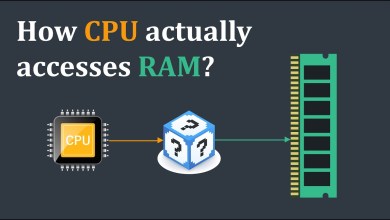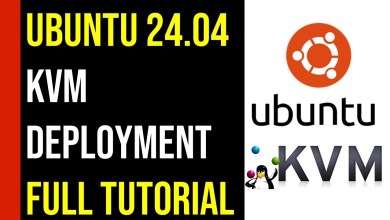CLOUD COMPUTING #cloudcomputing #cloud
Cloud computing is a technology that allows individuals and businesses to access and store data and applications on remote servers rather than on local computers or physical devices. These resources are hosted in data centers maintained by cloud service providers, who manage the infrastructure and provide the necessary tools for users to deploy, manage, and scale their applications and data.
### Key Concepts in Cloud Computing:
1. **On-Demand Self-Service**: Users can access computing resources as needed without human intervention from the service provider.
2. **Broad Network Access**: Cloud services are available over the network and can be accessed from various devices, such as computers, tablets, and smartphones.
3. **Resource Pooling**: Resources are pooled together in a multi-tenant model, meaning multiple users share the same physical infrastructure, but the resources are dynamically allocated and reassigned based on demand.
4. **Rapid Elasticity**: Cloud services can scale quickly, either expanding or contracting based on the needs of the user.
5. **Measured Service**: Cloud systems automatically control and optimize resource use by leveraging a metering capability. Users are billed for what they use, similar to utilities like electricity or water.
### Types of Cloud Computing Services:
1. **Infrastructure as a Service (IaaS)**: Provides virtualized computing resources over the internet. Examples include Amazon Web Services (AWS), Microsoft Azure, and Google Cloud Platform (GCP).
2. **Platform as a Service (PaaS)**: Offers hardware and software tools over the internet, typically for application development. PaaS includes services like Google App Engine, Microsoft Azure, and Heroku.
3. **Software as a Service (SaaS)**: Delivers software applications over the internet, typically on a subscription basis. Examples include Salesforce, Microsoft Office 365, and Google Workspace.
### Deployment Models:
1. **Public Cloud**: Services are delivered over the public internet and shared across multiple users (tenants). Public cloud services are scalable and cost-effective but may raise concerns about security and compliance.
2. **Private Cloud**: A single organization exclusively uses the cloud infrastructure. This offers more control over resources and security but can be more expensive and complex to manage.
3. **Hybrid Cloud**: Combines public and private clouds, allowing data and applications to be shared between them. This model provides greater flexibility and optimization of existing infrastructure, security, and compliance needs.
4. **Multi-Cloud**: Involves using multiple cloud services from different providers to avoid vendor lock-in and increase reliability.
### Benefits of Cloud Computing:
– **Cost Efficiency**: Reduces or eliminates the need for on-premises hardware and maintenance.
– **Scalability**: Easily scale resources up or down as required.
– **Flexibility**: Access services from anywhere, anytime.
– **Security**: Advanced security measures and compliance certifications are often provided by cloud providers.
– **Collaboration**: Enhances team collaboration by providing access to shared resources and tools.
### Challenges of Cloud Computing:
– **Security and Privacy**: Concerns about data breaches and unauthorized access.
– **Compliance**: Adhering to regulations and standards like GDPR, HIPAA, etc.
– **Downtime**: Potential for service outages, although rare.
– **Vendor Lock-In**: Difficulty in migrating services between different cloud providers.
Cloud computing is revolutionizing how businesses operate, providing agility, innovation, and cost savings while also requiring careful consideration of security, compliance, and vendor relationships.
#CloudComputing
#IaaS
#PaaS
#SaaS
#HybridCloud
#PublicCloud
#PrivateCloud
#MultiCloud
#CloudServices
#CloudStorage
#CloudSecurity
#CloudSolutions
#CloudTechnology
#CloudAdoption
#CloudMigration
#DigitalTransformation
#DataCenter
#Virtualization
#CloudInfrastructure
#CloudIntegration
#DevOps
#BigData
#AI
#MachineLearning
#DataAnalytics
#CloudApplications
#CloudBackup
#DisasterRecovery
#Serverless
#EdgeComputing
#IoT
#CloudStrategy
#CloudComputingServices
#CloudDeployment
#CloudManagement
#CloudOps
#CloudOptimization
#CloudPerformance
#CloudCostManagement
#CloudInnovation
#CloudAutomation
#CloudDevOps
#CloudMonitoring
#CloudGovernance
#CloudCompliance
#DataSecurity
#CyberSecurity
#ZeroTrust
#IdentityManagement
#CloudScalability
#CloudFlexibility
#CloudEconomics
#CloudPlatform
#CloudDevelopment
#APIs
#CloudAPIs
#CloudNetworking
#CloudCollaboration
#CloudModernization
#EnterpriseCloud
#SmallBusinessCloud
#CloudROI
#BusinessContinuity
#CloudTrends
#CloudProviders
#AWS
#Azure
#GoogleCloud
#OracleCloud
#IBMCloud
#AlibabaCloud
#CloudInnovation
[ad_2]
source



